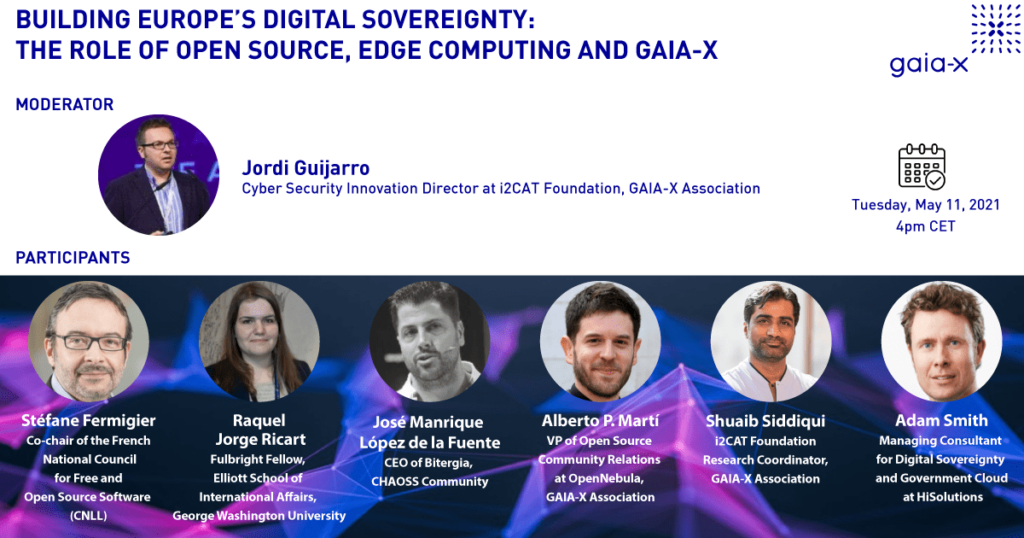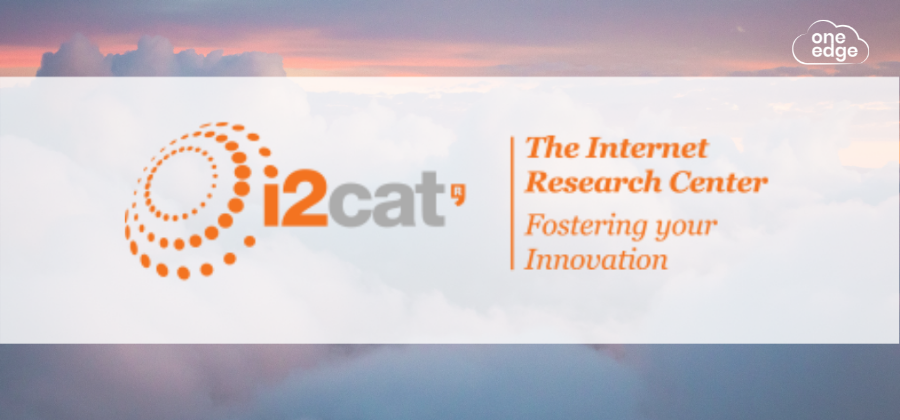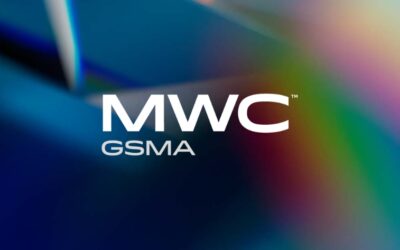
The event focused on discussing with several experts the role that open source, edge computing, and GAIA-X are expected to play in the process of building Europe’s digital sovereignty, and both the opportunities and challenges that lie ahead.
In early March 2021, the European Commission presented its 2030 Digital Compass, a concrete vision and specific targets for Europe to become a leader in the digital space over the next decade. The document acknowledged Europe’s vulnerabilities, its increased dependency on critical, often non-EU based, technologies, and the reliance on a few big tech companies, with less than 4% of the top online platforms being European. That digital transition, in which the European Union has agreed to invest at least a 20% of the Recovery and Resilience Facility, requires Europe to strengthen its own cloud infrastructure and capacities and to develop strategic technologies. For this reason, the event GAIA-X was celebrated.
The event gathered together Stéfane Fermigier (Co-chair of the French National Council for Free and Open Source Software—CNLL), Raquel Jorge Ricart (Fulbright Fellow, Elliott School of International Affairs, George Washington University), José Manrique López de la Fuente (CEO of Bitergia, CHAOSS Community), Alberto P. Martí (VP of Open Source Community Relations at OpenNebula, GAIA-X Association), Shuaib Siddiqui (i2CAT Foundation Research Coordinator, GAIA-X Association), and Adam Smith (Managing Consultant for Digital Sovereignty & Government Cloud at HiSolutions). It was moderated by me, Jordi Guijarro, Cyber Security Innovation Director at i2CAT.
The participants highlighted the importance of working together, collaborate, and support the ecosystem, “democratize” instead of “regulate”. The mentality needs to be changed, it is a must to push for European opensource tools and communities and be aligned to the market concept, considering it.
The event was divided into two parts, being the first one the presentations and introductions of the speakers, and the second one a debate following a series of questions regarding main topics and challenges.
- Do you think EU governments and institutions are doing enough to promote open source in Europe?
- How can open source be used to democratize access to edge computing?
- What do you think about data exchanges and privacy issues?
On Youtube you can see all the event, divided into these two parts mentioned:






0 Comments